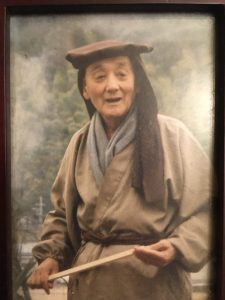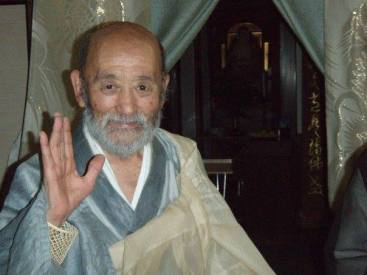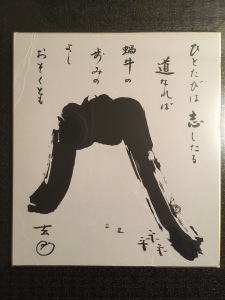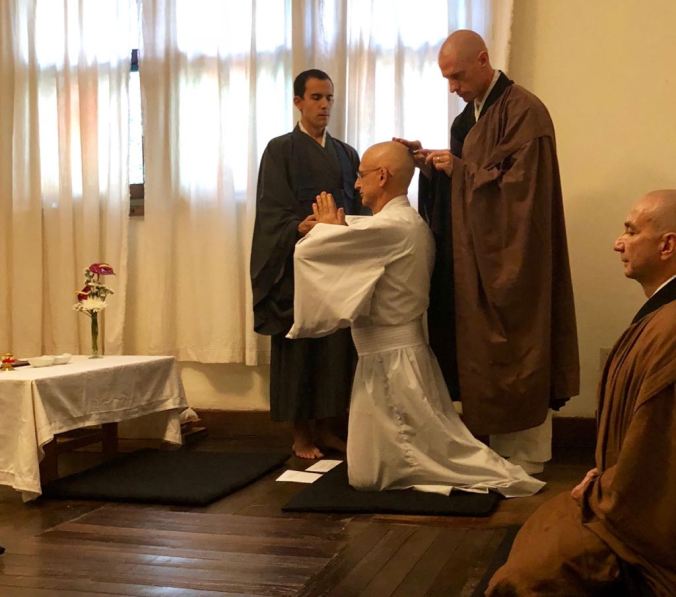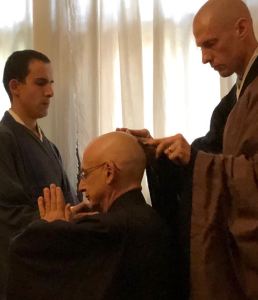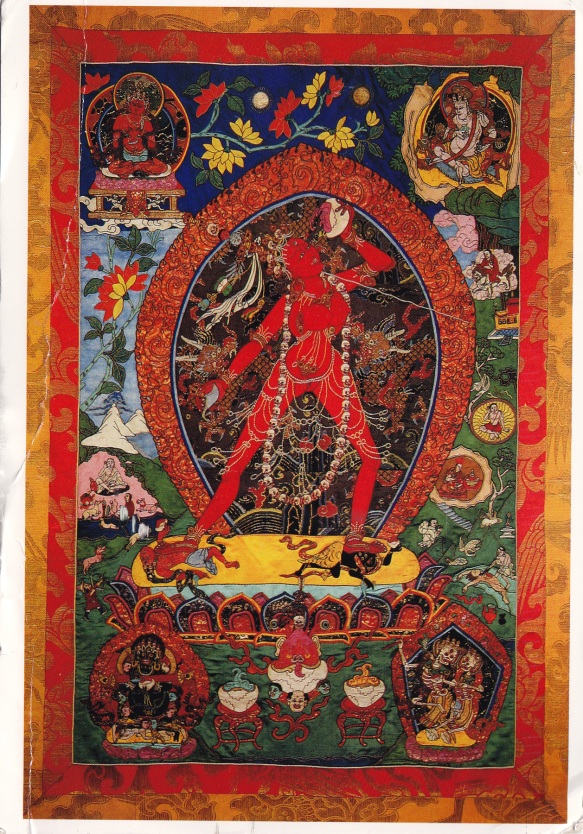I’ve been finding myself lately remembering and sharing a story. It’s the story of a couple of exchanges I had with the head cook at Green Gulch Farm shortly after 9/11.
The head cook at the time was a lovely and compassionate priest a decade or so my senior. This kind, sensitive priest was really moved by 9/11, felt in it a clear call to step up and step out, to build bridges however he could and do his part to heal the world. So on his free time – which for a tenzo isn’t much – he threw himself into a non-profit project geared, as I recall it, towards inter-religious unity and understanding.
For my part, I was a young and dutifully uptight Zen student and soon to be ordained priest, assigned to work under him for a while in the temple kitchen. I was sincerely concerned with and devoted to the temple rituals and forms, and, especially given the sanctified role of kitchen work in the Zen tradition, I took my duties very seriously.
One of our agreements in the kitchen was that all of the staff were to wear a head covering, a bandana serving the function of a hair net you would expect food professionals to wear. The dispositional differences between the tenzo and I had already been clear well before 9/11, and I think our positions on the head covering would suffice to express it. In short, I felt pretty strongly about such minutia of our procedure, and the tenzo felt considerably less so, had a wider, softer view of things.
So against this backdrop, sometime in that first week after 9/11 I confronted the head cook incensed that other kitchen workers weren’t wearing their head covers.
“This is our practice! Why aren’t you enforcing it?!”
A heated conversation ensued in which he tried to point out that I was narrow-minded and uptight and judgmental, and in which I tried to point out that he was abdicating his duties as tenzo and priest. I forget who won.
In any case, as such things go in community, a day or two later we apologized to each other. In doing so, the tenzo summarized our positions nicely, and reflected them against the deep anxiety and despair and confusion we were both feeling about world events.
He said something to the effect of, “My feeling was that with the world in this state, how can you be worried about head covers?!”
I really appreciate that. Especially now, as those of you who have been following No Zen know well, I too feel that call to turn fully to the world. Why – especially now – should we worry about what foot we walk into the zendo with? About where our thumbs should be when we put our palms together in gassho? If we’re supposedly such selfless Bodhisattvas, why not turn our minds and hearts to the actual challenges of our shared human family, to the deep hatred and violence and suffering and pain in our society and communities?
But then the tenzo summarized what he felt I’d been saying like this:
“So my feeling was that with the world in this state, how can be worried about head covers?! But I think what you were feeling was that given the state of the world, isn’t covering our heads the very least we can do?!”
I really appreciated, and still appreciate, that reflection.
Isn’t taking care of this little detail right in front of me the least I can do for the suffering world? And the deeper, the louder I hear the worlds’ suffering, doesn’t that raise the stakes for this engagement in detail, for this taking care of at least the little thing right before me? This is menmitsu.
I don’t know about head coverings; it’s not my thing right now, I don’t work much in the kitchen. And for most people most of the time temple forms and procedures are anyway beside the point.
I also don’t know about non-profits. There are some good ones, for sure, and I’m not sure quite how else we think the world will change. And we do need it to change. Or, for those awakened readers beyond “need,” consider at least that, important or not, it’s well worth giving this little life or two to help it to change.
So what will we do?
I know that I do have something to take care of right now. Sometimes that something is global, and sometimes it’s minute, just right here at my feet. Sometimes it’s a non-profit like the tenzo’s. And sometimes it’s a child, or a dish, or, yes, even a bow.
The vital point for me today is that whatever it is, can I live it as my response to the suffering of the world? However small, however huge – can I hold what I am doing and how I am doing it as the least I can do for this suffering world?
When I don’t open to the suffering of the world, it’s because I fear the overwhelm that lives right there. The helplessness, pain, despair. And who wants that? So, like many of us, I push away the immensity of the pain – my own and others’ – and return to work hard at my spiritual or not-so-spiritual bypasses. “What pain?”
But what about, instead, the least I can do? What about opening to the full range and scale of human suffering, of the suffering even of all beings, and then engaging the energy of that suffering, the energy of our longing for it to cease, into our practice, into our activity?
Open to the suffering of the world – this world – the least I can do is to cut this carrot nicely, carefully. The least I can do is found a non-profit. The least I can do is appreciate my life in this one breath. The least I can do is disable this bulldozer, sabotage this pipeline, lock to this gate. The least I can do is spell check a blog post. The least I can do is put my forehead to floor.
Not avoiding the global, but not missing the minute, may I live my life entirely as a reply to the suffering of beings.
That is living with intention, and that is dedication of merit. And that, as I understand it, is the Bodhisattva Path.
